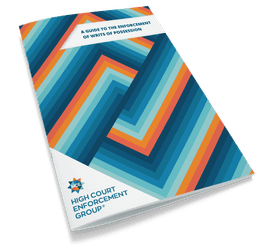What the public thinks about enforcement

On 14th May 2024, the High Court Enforcement Officers Association (HCEOA), of which our authorised High Court Enforcement Officers are members, presented the findings of an independent survey to HCEOA members, the Enforcement Conduct Board and the Ministry of Justice.
The survey was run by independent research company Norstat, from 26th March to 3rd April 2024. A statistically large representative sample of 2,000 members of the general public in England and Wales was asked about their perception of enforcement and enforcement agents.
Summary of findings
The overall outcome was that there is strong support from the general public for fair and effective enforcement as part of the judicial system.
However, there are areas where more education around certain aspects of enforcement is required and there is still a job to be done in terms of building public trust in the industry.
The headline figures are:
- 83% - agree or strongly agree that fair and effective enforcement is a necessary part of the justice system
- 82% - agree or strongly agree that enforcement is an important service for people and businesses to recover debt and that it is important that the creditor should receive the full amount of the judgment
- 88% - it is important for enforcement agents to use body worn video cameras
- 72% - thought unpaid debt would increase without fair and effective enforcement
Three core themes
These core themes came out of the survey:
- There is strong support for “fair and effective” enforcement
- The public expects an enforcement system that recognises and supports vulnerable people and is fair to everyone involved
- Most people expressed confidence in the system and enforcement agents, but there is room for improvement
1. Fair and effective enforcement
As shown above, 83% agreed that this is a necessary part of the justice system and 82% that it is an important service to recover debt.
79% also agreed that people and businesses owed money should be able to use a regulated enforcement system to recover that debt and 72% felt that unpaid debt would increase if this were not in place.
Finally, 78% believed that it is unfair that those who pay for goods and services are paying more to cover the extra costs to the provider caused by those who do not pay.
2. Vulnerability support
89% of respondents think that it is important that there are clear rules and regulations in place to protect vulnerable people, with 89% also thinking it is important that debtors who cannot afford to repay are offered repayment plans.
3. Confidence in the system
- 58% understand that there is a set fee structure
- 69% that there are rules and regulations governing how enforcement agents operate
- 61% trust enforcement agents to follow the law
Whilst these numbers are broadly positive, they do show that there is still plenty to be done to educate the public on how enforcement works, the regulations in place and the building of trust.
Property market
The survey also looked for views on the property rental market and there was a strong consensus that the impact of not having a legal enforcement system for landlords to remove people illegally living in their properties would be negative for both landlords and tenants, with:
- 62% agreeing that it would be harder for landlords to remove illegal tenants
- 37% thinking that fewer people would want to be landlords
- 56% believing that there would be an increasing number of renters not paying their rent
- 25% suggesting that rents would go up as a result
Read the full report
You can read the full report “Public perception of enforcement in England and Wales” on the HCEOA website.



